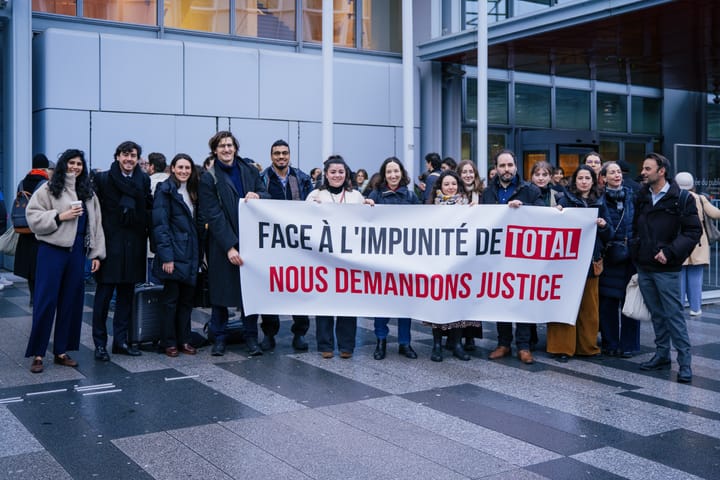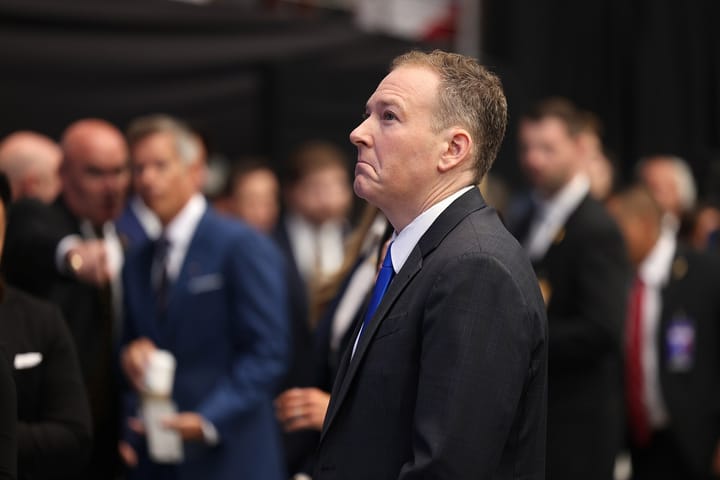Suncor And Exxon Lodge Third Petition To US Supreme Court In Boulder Climate Case

The companies are counting on a sympathetic Trump administration to bolster their position.
Oil companies ExxonMobil and Suncor are asking the US Supreme Court to review a ruling issued by Colorado’s highest court in May that allows the city and county of Boulder’s climate liability lawsuit against the companies to move forward towards trial.
In a petition for certiorari filed on August 8, industry lawyers argue that the Colorado Supreme Court’s ruling was wrongly decided and that federal law does not allow Boulder to bring claims under state law concerning harms stemming from greenhouse gas emissions and global climate change. The US Supreme Court should intervene in the case, they say, in order to resolve a deepening disagreement in the courts on the applicability of state law in climate lawsuits targeting the fossil fuel industry – and before the industry “is threatened with potentially enormous judgments” on the order of billions of dollars.
Boulder’s case, filed in 2018, alleges that the oil company defendants misrepresented the climate change risks of their products in order to protect their profits and market dominance, which in turn resulted in more fossil fuels being sold and consumed and ensured greater damaging climate change impacts such as extreme heat and flooding, worsening wildfires, and more severe droughts. The lawsuit asserts state law claims including public and private nuisance, trespass, unjust enrichment, and civil conspiracy, and demands that the companies pay damage costs. Similar cases against big oil companies have been brought by dozens of municipal, state, and tribal governments across the country.
Many of the cases, including Boulder’s, have been mired in jurisdictional battles for years as the companies have fought to remove the suits to federal courts. That strategy has been unsuccessful, though it has significantly delayed the litigation from advancing. In Boulder’s case, the defendants have already filed two cert petitions to the US Supreme Court. The first one was granted, as were several other petitions in similar climate liability suits, as the Supreme Court directed appellate courts to consider the industry’s additional grounds for federal removal. The Tenth Circuit Court of Appeals, along with several other appeals courts, then rejected those additional arguments, prompting industry lawyers to go back to the US Supreme Court to try to block the litigation.
The Supreme Court ultimately denied these second round of petitions in 2023, though the court first requested the US Department of Justice to weigh in with a brief expressing the views of the federal government on the state versus federal court question. The Solicitor General, then under the Biden administration, backed Boulder’s position that the litigation should proceed in state court.
Now, ExxonMobil and Suncor appear to be counting on the second Trump administration that is sympathetic to their interests to bolster their chances of getting the Supreme Court to intervene and stop the cases in their tracks.
Their latest petition cites to President Trump’s executive order directing the Attorney General to put a stop to state laws and lawsuits that target or burden the fossil fuel industry, and notes that the Department of Justice has since taken legal action against Hawaii and Michigan to try to preemptively block them from filing climate liability suits against the industry. The petition also references a brief filed last month by the Trump administration supporting oil companies’ position in climate suits brought by Maryland municipalities, which are currently on appeal before the Maryland Supreme Court after state trial courts dismissed the claims.
While the Maryland cases and some other state and municipal climate cases have been dismissed by state trial courts, several other cases – including Boulder’s – have survived the industry’s attempts to get them tossed out. In 2024 the Boulder County District Court denied the defendants’ motions to dismiss Boulder’s case, and on May 12, 2025 the Colorado Supreme Court upheld that decision in a 5-2 ruling. The state supreme court rejected the companies’ characterization of the case as an attempt to regulate GHG emissions, determining that the claims at their core are about misrepresentation and deception – not global emissions.
The Hawaii Supreme Court came to the same conclusion in a climate deception suit filed by Honolulu against major oil companies. Industry lawyers tried to challenge that judgment with a cert petition to the US Supreme Court. Earlier this year in January the justices denied that petition, though before doing so they again asked the Solicitor General to file a brief – and the Biden DOJ supported Honolulu’s position that the petition should be denied.
The Honolulu petition was seen as an early test of whether the top US court would feel compelled to wade into this litigation before any trial judgments are made, particularly on the question of whether federal law necessarily preempts state law claims pertaining to climate change. The court’s denial of that petition, some legal observers say, suggests that it is unlikely to intervene at this stage simply because industry lawyers lodge another attempt in a different case, even with backing by the Trump administration.
“The companies are counting on help from Trump but that will not be enough to convince the Court to weigh in now,” said Pat Parenteau, emeritus professor of law and senior fellow for climate policy at Vermont Law and Graduate School. “The Court can bide its time and await a final judgment based on a fully developed record.”
ExxonMobil and Suncor say in their petition that “stakes in this case could not be higher” – a statement that oil companies also made in the Honolulu petition. In Boulder’s case, they further say that the Supreme Court should, at minimum, request the Solicitor General to weigh in, suggesting that they are counting on support from the Trump administration to help sway the court.


